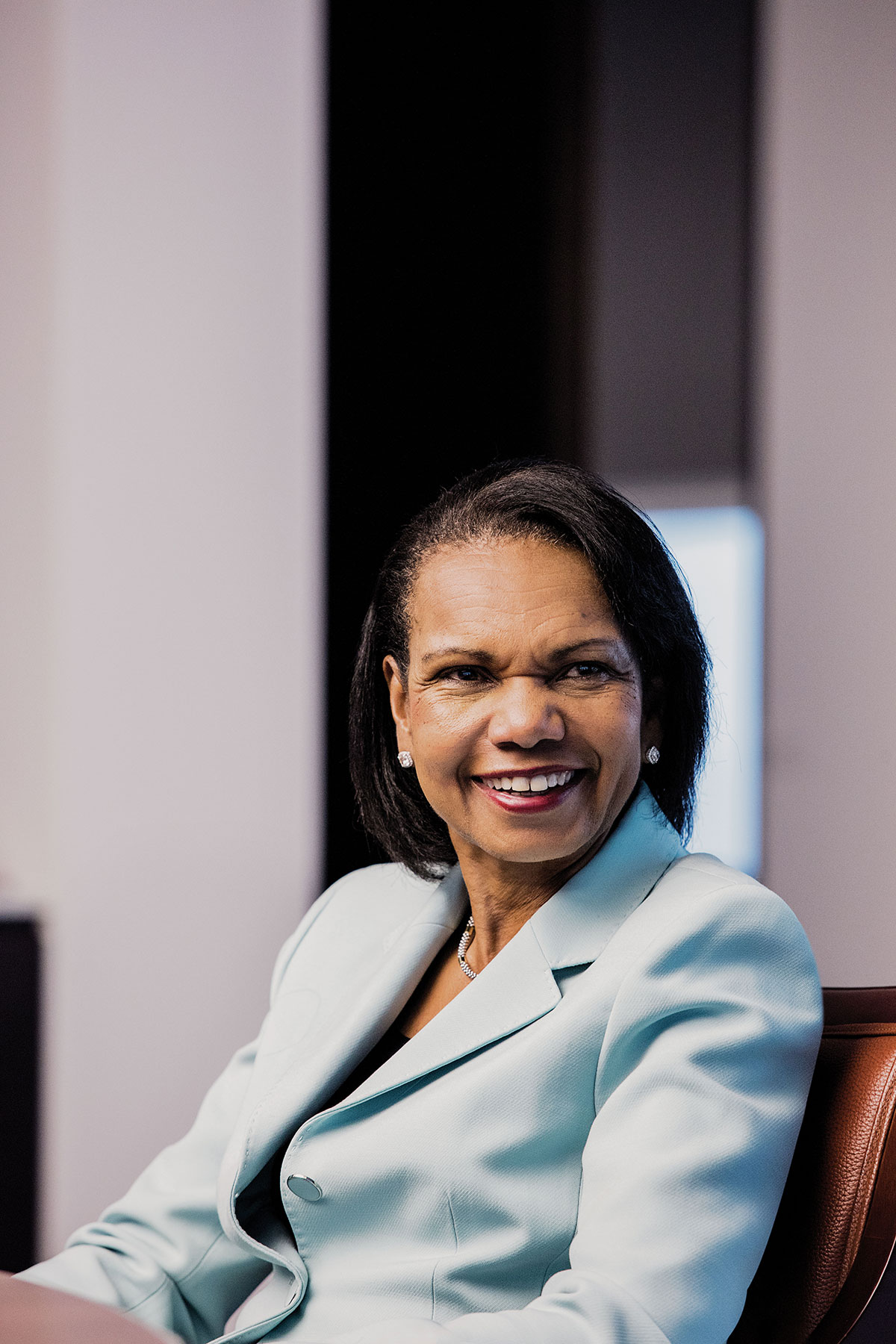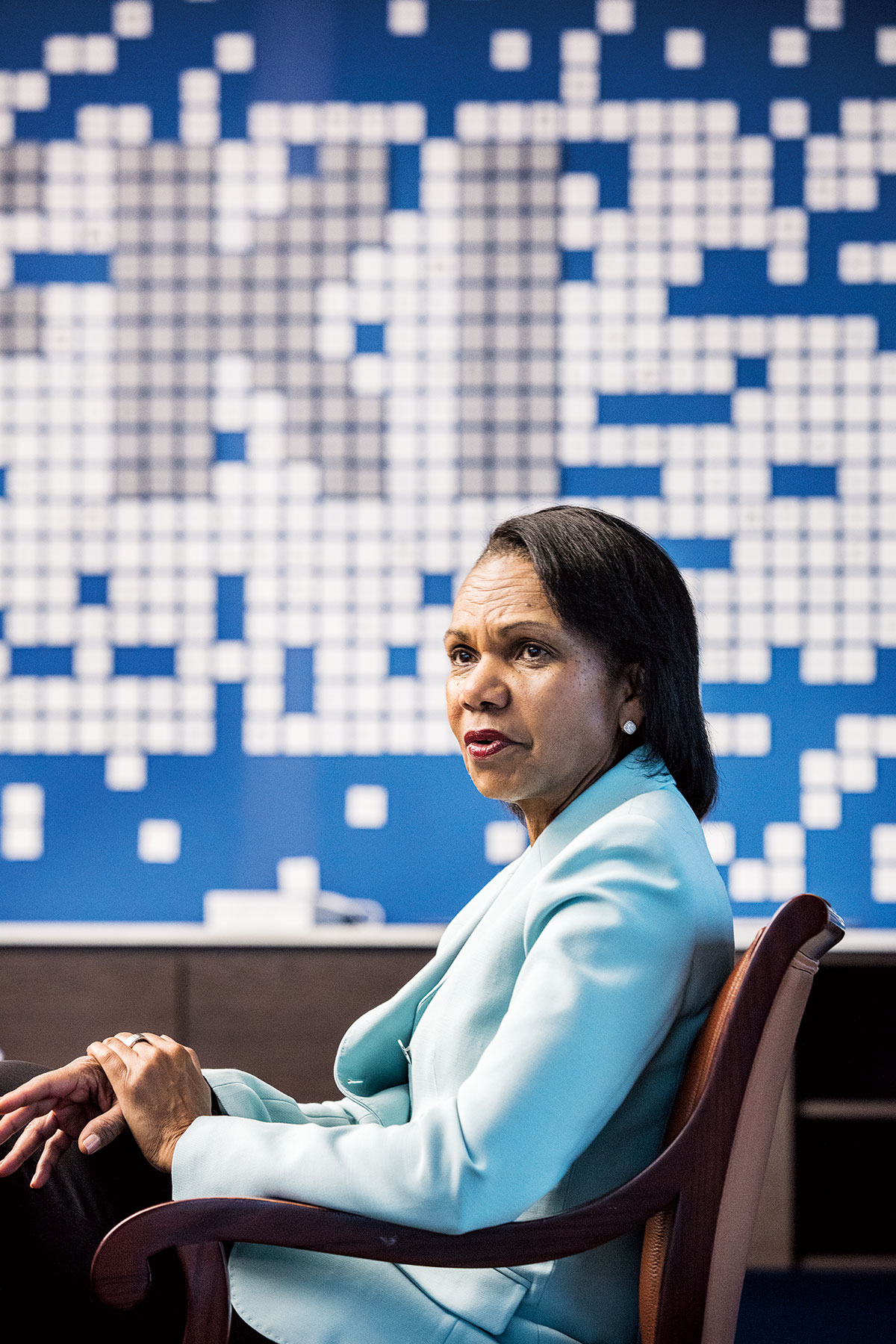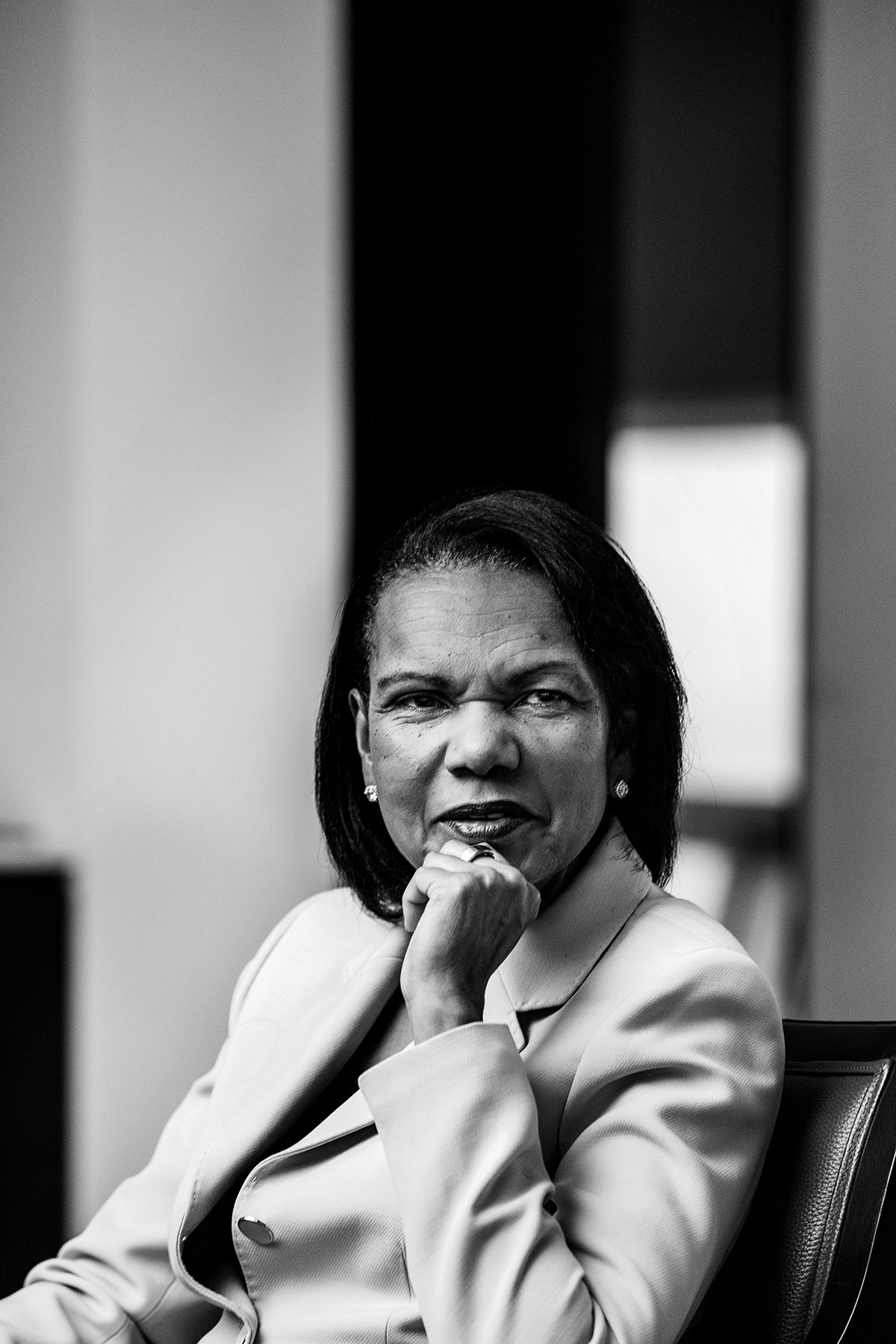Special Interview
A Legacy of Firsts
Dr. Condoleezza Rice,
66th United States Secretary of State
A Legacy of Firsts
Dr. Condoleezza Rice,
66th United States Secretary of State

Profile
- B.A. and Ph.D. in Political Science, University of Denver
- M.A. in Political Science, University of Notre Dame
- U.S. Secretary of State (2005-2009)
- U.S. National Security Advisor (2001-2005)
- Provost of Stanford University (1993-1999)
Dr. Condoleezza Rice, who had dreamed of working in the White House as a child, was inaugurated as the 66th U.S. Secretary of State in 2005. Many of her titles include the word “first”: the first female National Security Advisor, first African-American woman Secretary of State, and first and youngest African-American woman Provost of Stanford University. Dr. Rice, who has pioneered countless uncharted territories shares her insights on ROK-U.S. relations and leadership.
By Hye-won Kim
Photographer Gyu-chul Shin
Q. It’s been eight years now since your last visit to South Korea. Welcome back! As the director of the Hoover Institution, your schedule must be pretty hectic these days.
A. The Hoover Institution is a research center at Stanford University that examines questions on issues such as education, technology, governance, politics, and national security. The organization is focused on providing policy solutions to the biggest challenges facing the United States and the world today. As Director, I am able to engage with experts at Hoover and across Stanford in all of these fields. I’m also fortunate to be able to spend time with students and future leaders, and I enjoy teaching both undergraduates and courses at the Stanford Graduate School of Business.
Q. You have been a pioneer in breaking down gender and racial barriers and shattering stereotypes. What are some lessons you have learned in this process?
A. Although I may have some accomplishments that come with the label of “first,” I did not pursue these challenges merely to be the first. I focused on what I was good at and what I wanted to do. I met a lot of great mentors, and the advice of my parents—both educators—was also helpful. In particular, mentors are essential because they help you discover aspects of yourself that you might not recognize. I believe there is nothing more important for young people than finding good mentors.
Q. In your autobiography, No Higher Honor, you shared some anecdotes regarding South Korea and its key figures. Now, ten years after publishing your memoir, how do you currently view South Korea?
A. I have always admired the Korean people for the way they have lifted their society from the depths of war to become one of the leading innovators of technological and social progress in the world. The relationship between the United States and the Republic of Korea has remained strong and will continue to play a very important role in the future. As we watch the expansion of military ties between Russia and North Korea, I feel grateful for South Korea’s efforts to ensure peace and stability in the region. The future strength and security of the United States and the international community depend greatly on a safe and secure South Korea.
Q. You mentioned around six to seven years ago that Kim Jong Un would become the greatest threat to future international relations. What are your concerns regarding the recent union of Putin, Xi Jinping, and Kim Jong Un, and how should South Korea and the West respond?
A. The alliance of these three is concerning, but their focus is more about trying to undermine and replace the U.S.-led international system than any real shared interests. I would say it’s better to keep an eye on Russia, China, North Korea, and Iran individually. We also need to boost U.S. deterrence in the Indo-Pacific region and continue supporting Ukraine to prevent a Russian victory.
Q. How do you view the future of South Korea amidst the increasing competition among major powers, the Russia-Ukraine war, the growing threat of North Korea’s nuclear capabilities, and the strengthening of North Korea-Russia relations?
A. I would like to be optimistic, for four reasons. The first is the private sector. South Korea has grown from a small, dependent country into one of the current growth engines of the global economy thanks to innovation in its business sector. In a democratic system, the private sector harnesses talent, takes risks, and engages in creative activities, pursuing innovation and growth. While regulations are necessary, they should not hinder the innovation and growth that only the private sector can achieve. Second is the technological revolution. Advances in technologies such as synthetic biology, quantum computing, the commercialization of space, and robotics will be utilized in healthcare and education, improving our quality of life. Third is the ongoing alliance of democracies. The democratic countries in the Indo-Pacific and Europe are more united for peace and prosperity than at any time since the Cold War. Last year’s ROK-Japan summit, hosted by the Hoover Institution after the Asia-Pacific Economic Cooperation (APEC) summit, demonstrates that democratic nations can overcome historical differences and cooperate. Fourth is the strength of the younger generation. Today’s youth are the most public-minded generation I have ever taught in my 40 years in academia. In the United States, the generation that fought in World War II is called “the greatest generation,” and South Korea also has its greatest generation who fought in the Korean War. However, the progress of democracy is not the achievement of a single great generation, but is realized through the continuous efforts of successive generations. These younger generation will carry the torch of democracy, free markets, and the private sector into the future.

“The relationship between the United States and the Republic of Korea has remained strong and will continue to play a very important role in the future. The future strength and security of the United States and the international community depend greatly on a safe and secure South Korea.”
Q. You have served in high-level positions such as National Security Advisor, Secretary of State, and Stanford Provost. Could you please share your approach and philosophy when faced with difficult decisions, as well as your key to making sound judgments?
A. There are three things you need to be able to make tough decisions. The first is to know your facts and be prepared. The second is to gather as much information as you can. Ask a lot of questions, especially if you’re under intense pressure or are not an expert on the subject matter. Surround yourself with competent people, and be receptive to other perspectives. I value and encourage diverse opinions, but they have to be informed ones. After you’ve gathered that information, always ask yourself, “What is it we’re trying to achieve here, and how can we best achieve that, given the limitations we face?” By asking the right questions, you uncover enough data to make more informed decisions that lead to better outcomes. Finally, be decisive. Decision making when you’re under pressure is always hard, but you have to keep your wits about you and trust yourself. But remember: not making a decision is a decision too, and people would rather have an answer of “no” than have no answer at all.
Q. Communication is just as important as sound judgment. What do you believe are the essential elements of communication that a CEO and opinion leader should possess?
A. Good communication begins with mutual respect. A good leader is able to build a cohesive unit with a solid, central mission where everyone’s skills and capabilities are utilized toward a common goal or set of values. Truly remarkable leadership is not just about motivating others to follow. It’s about getting them to recognize that they are part of something bigger than themselves—that together, they can do what they couldn’t do on their own. At the foundation of all that must be trust and cooperation. Trust and cooperation allow for honest conversation among team members, and that is what can turn a group into something greater than the sum of its parts. Through effective communication, you create a healthier, more productive, and more successful environment.
Q. As AI technology rapidly advances, it has stimulated discussions on the coexistence of technological innovations and ethical standards. How can we balance the two?
A. Technology is not a solution in and of itself, but a tool, and one that must be used wisely. It is important to foster technological progress, but it is equally important to maintain responsibility in experimentation. Risks will emerge that will require regulation, but if you’re trying to predetermine a regulation for something that is evolving this quickly, you’re almost always going to make mistakes. It is therefore important to live in this new ecosystem and understand it before rushing to regulate. The imperative protection of human values in AI development will continue to pose a challenge to researchers, but it is a challenge worth undertaking.

“Once you have ignited your passion,
it’s time to believe that you deserve to be in that position.”
“Once you have ignited
your passion, it’s time to
believe that you deserve
to be in that position.”
Q. Last of all, as one of the most influential female leaders in the world, please share some words of wisdom for women who aspire to be leaders.
A. Since glass can be shattered, I always saw the glass ceiling not as an insurmountable barrier, but as the path to the top. As a former military expert on Russia (former Soviet Union), I often faced skepticism in meetings, but I always believed that they would eventually recognize me as the right person for the job. Forget the doubts of others, and have confidence in your own abilities. It is also good to dream of success by working and preparing twice as hard as others. Once you have ignited your passion, it’s time to believe that you deserve to be in that position. Break the glass ceiling, and open the door of opportunity.